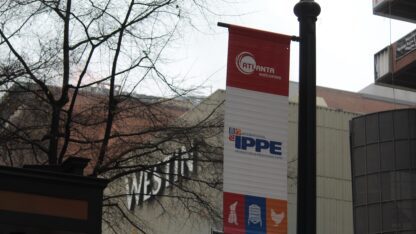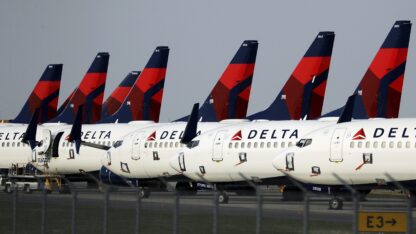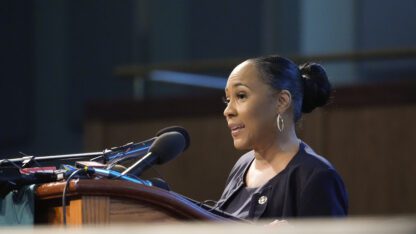Low Pilot Pay Sends Newbies Looking Elsewhere
There’s a huge demand for pilots at the nation’s regional airlines. The Government Accountability Office says the small airlines need thousands of new pilots.
So you’d think lots of folks would be in line. After all, top captains at airlines like Atlanta-based Delta can pull in a cool quarter-million a year.An audio version of this story as heard on WABE's All Things Considered
But starting salaries are sending some Atlanta pilots elsewhere.
Like Doug Fowler, who quit Atlanta-based regional carrier Atlantic Southeast Airlines (now ExpressJet), after nine months. Just walked away.
“My paycheck—my [take] home pay—was $13, 300 for that time frame,” he says.
According to the Air Line Pilots Association, the average co-pilot at a regional carrier starts out at about $22,000. That’s 10 bucks an hour. Fowler says he had to work a second construction job just to make ends meet.
Pilots “should be paid more than $20,000 a year,” Fowler says. “You’re responsible for, say, 50 people in the back of an airplane. My wife’s life is worth more than 20-grand a year. So that’s the way we look at it.”
But that’s not exactly how regional carriers look at it. They bid contracts to the big guys to fly small planes on short routes. It’s fiercely competitive. So one way to make money is to pay first officers next to nothing.
Atlanta-based aviation consultant Kit Darby says historically, everyone knew the game.
“Typically, pilots worked in this position and moved on to another company,” Darby says. “So the airlines felt they were being used as a stepping stone. Since they were leaving anyway, there wasn’t much incentive to provide a living wage at the starting position.”
But airlines are a different beast.
Mandatory retirement for pilots is now 65. A few years ago, it was 60. And a new Congressional mandate requires first officers amass 1,500 flight hours before they can get an airline job. That’s a 600% increase.
Darby says something’s got to give at the regionals.
“They have to be mindful that they are competitive with other companies, or they’ll take what is an inadequate supply and turn it into no pilots available.”
Pilot Doug Fowler say she might return to the big guys one day. But for now, he’s content flying corporate customers out of DeKalb-Peachtree Airport (PDK) in a single-engine turboprop at about $30,000 a year.
9(MDAxODM0MDY4MDEyMTY4NDA3MzI3YjkzMw004))








